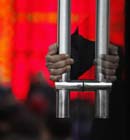Opinion
It's not the time for stealing pigs
By Jiao Xiaoyang (China Daily)
Updated: 2010-03-23 11:25
 |
Large Medium Small |
These days, all eyes are on the People's Bank of China, the Federal Reserve, and other international policymakers, as the market becomes increasingly edgy over whether they will act to head off inflation brought on by stimulus measures.
In fact, we don't always have to wait for these heavy hitters to tell us what they think is happening. There are many grassroots indicators we can look at. Take, for example, the price of pork.
Why pork? Because we Chinese eat a lot of it, and the price can tell us where the economy is headed.
"Every pig farmer is worrying," a farmer surnamed Liu in Hebei province was quoted by Xinhua News Agency as saying on Thursday. The price of pork has dropped a third from a month ago and Liu, who raises more than 40 pigs, is facing a loss of about 100 yuan ($15) per pig. "If the price keeps going down, we'll have to dump," he said.

In many provinces, the price of a kilogram of pork has fallen below six times the price of grain, according to Xinhua. The central government last year described the "normal range" for the price of pork as between six and nine times the price of grain, and promised to step in once it goes beyond that range.
The weak price of pork may help soothe investors' fears that the central bank will soon move to tighten liquidity in the wake of a higher-than-expected 2.75 percent growth in February's consumer price index (CPI). Food accounts for nearly 33 percent of the index, and pork makes up more than 9 percent of the food category.
A National Bureau of Statistics survey found that the prices of nearly 80 percent of food products in 50 cities declined in the first half of March. This tends to confirm that the rapid growth of CPI in February was an anomaly, caused by buying in anticipation of the Spring Festival.
It works both ways, too. In 2007, increased costs and a short supply combined to make the price of pork soar, pushing yearly CPI growth to 4.8 percent, the highest rate of inflation since 1997. The climax came in February 2008, when the price of pork jumped 63.4 percent, driving CPI up 8.7 percent.
What happened? Things went crazy. In Shanghai, four deliverymen were caught stealing 50,000 yuan's worth of pork from a restaurant. In Zengcheng, Guangdong province, a farmer named Jiang Jianqing had more than 100 pigs disappear overnight.
Meanwhile, hundreds of thousands of retired people were taking their savings out of the bank and buying mutual funds in the belief that nothing could stop the stock market.
That was then, this is now. The tough times pig farmers like Liu are facing reminds us that in today's low-interest and low-inflation market environment, it's more about sowing seeds than smelling the roses.
If we believe hardworking people like Liu will be rewarded, perhaps that faith will be reflected in the stock market.
The time to get bearish is when stealing pigs becomes a paying job again. Right now, that seems a long way away.
The author is executive business editor of China Daily.













